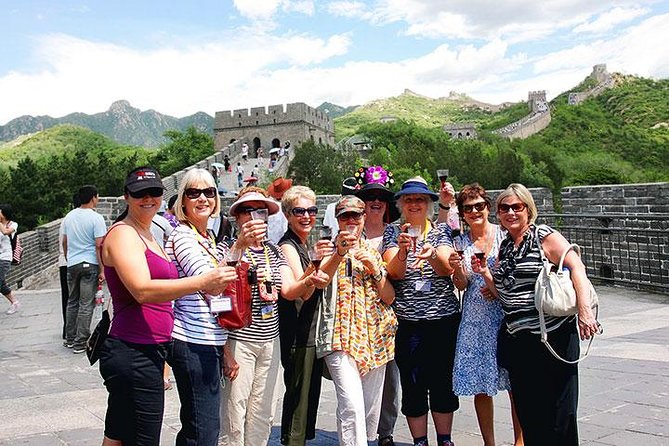20 Pro Ideas To Food Guide to China Best Cities
20 Pro Ideas To Food Guide to China Best Cities
Blog Article
Top 10 Tips To Avoid copyright Items When Shopping In China
1. Be aware of high-risk products: The most frequently counterfeited items include designer clothing bags, watches electronic devices, as well as electronic gadgets. They must be considered cautiously.
Pro: It can help you concentrate on fake products.
Con: Lack of knowledge regarding authentic products can lead to suspicion.
2. Genuine product information can be found through research
Shop with a brand that you know well. Be aware of the specifics of their logo, stitching and materials.
Pro: Increases your skill in spotting subtle differences between fake and real products.
Cons: It may be slow-going, especially in the event that you're unfamiliar with the product.
3. Shop at Trusted Stores
Tip: Stick to authentic brands or reliable malls like Beijing's China World Mall (or Shanghai's Plaza 66) for high-value products.
Pros: The product is authentic and comes with receipts.
Con: Some items are significantly more expensive in the street markets or in smaller stores.
4. Examine labels and tags
Tips: Check for misspellings, inconsistent fonts, or low-quality materials on tags and packaging.
Pro: A quick method to identify poor quality counterfeits.
Con: High quality counterfeits are often able to closely mimic authentic features, making it difficult to identify.
5. Beware of "Too Good to Be True" Prices
The price of luxury products are usually quite affordable. This should trigger an alarm. Luxury goods are rarely sold at a price that is lower than their retail value.
Pro: Helps you to avoid obvious scams.
Con: Some sellers moderately price fakes in order to give them a more convincing appearance.
6. You can request authentic certificates
Tip: Get authentic documents for items such as antiques, jade and branded items.
Pro: It adds an additional assurance to your purchase.
Con: Certificates can be forged, so this is not a foolproof method.
7. Check Before You Purchase
Request that high-end electronic devices and other products examined prior to making an purchase.
Pro Tests the its functionality and high-quality.
Con: Sellers are not required to allow testing or may be limited to simple purposes.
8. Do not buy antiques if you do not have the necessary knowledge
Tips: An authentic antique requires an extensive understanding and expert verification. Avoid them unless their authenticity is guaranteed.
Pro: It reduces the chance of being scammed by a fake or a replica.
Con If you don't take the time to take a look, you could not find something appealing or even authentic decorative pieces.
9. Use an Local Guide That You Trust
Tip: A guide from the region or a friend who is familiar with the market well can assist in identifying authentic vendors and identify counterfeits.
Pro: Reduces risk and saves time when shopping in unknowledgeable markets.
Con: Guides can expect an amount or commission. This could increase the price of your trip.
10. Trust your Instincts
Do not purchase something if you feel it's not natural or unnatural, regardless of the vendor's attitude or product quality.
Pro: It safeguards you from regrettable purchases.
Cons: Being overly cautious can cause you to miss out on bargains.
Cons of Avoiding copyright Products
Durability: Genuine goods are stronger and offer more value for money.
Peace of mind: There's no need to be concerned about being scammed or deceived.
Legal Safety: Some nations penalize travelers for bringing copyright products back to their home countries.
Brand Reputation: Authentic products help to maintain moral business practices.
The Cons of Avoiding False goods
The genuine items are more expensive.
Limited Availability: Genuine goods might not be available in street markets or smaller shops.
The counterfeits may be of high quality and offer great value.
These suggestions can help you navigate your shopping experience in China with confidence and make an informed choice about whether or not you would like to purchase authentic goods. Read the best learn why this spot is so famous for website recommendations including xi an travel tips, shanghai portman acrobatic show one of the best acrobatic shows in shanghai, the color of dress in china, shopping in xi an, shopping in harbin, chinaexpeditiontours.comattractions, eating in lanzhou, lijiang tour maps, snow beer the best selling beer in the world, south luogu laneone of the oldest neighborhoods in beijing and more.
Top 10 Tips For Respect For Culture When Visiting Temples That Are Famous In China
1. Use the proper manners for temples - Every temple has its specific rules. Respect local customs and adhere to the rules, no matter if they're making a bow or offering incense during rituals.
Pro: It shows a great deal of respect to the temple and its sacred practices.
Cons: Temple rituals and etiquette may be confusing if you are not familiar with them.
2. Dress in a modest manner
Dress in conservative clothes that cover your shoulders, arms knees, and legs. Some temples offer shawls or scarves to protect visitors.
Pro: This shows respect for the sacred place and helps to avoid inflicting a negative impact on locals.
Con: In hot weather, it may be uncomfortable and require additional clothing.
3. Be Silent and Calm
Tip. Keep a calm serene and calm manner. Particularly in prayer areas and sacred places. Beware of loud conversations and speak softly.
Pro: It maintains the sacredness of the place, and respects worshippers.
Con: Silence can seem awkward or uncomfortable in tourist areas that are crowded.
4. Avoid Disrupting Worshippers
TIP: Do not disturb those who are praying, meditating or engaging in other rituals. Allow people to finish their rituals.
Pro: Takes into account the beliefs and practices of the spiritual other people.
Con Cons: It's tempting to connect with the worshipers However, you must be careful to avoid becoming distracted.
5. Do not touch sacred objects
Avoid touching altars, statues or other sacred objects unless permitted to touch them. These objects are generally regarded as highly sacred.
Pro Respects the culture and sacredness of temples.
Cons: It can be tempting for you to touch objects in the hopes of taking photographs or because of curiosity.
6. The Elders deserve respect
Tip: In many temples, people who are older have a position of respect. Show extra respect and politeness when interacting with older people.
Pro: Respecting elders is a value of the culture that should be honored.
Cons: You might find it odd in a culture that doesn't value respect based on one's age.
7. Follow the lead of locals
Tip : If you don't know how to behave in a specific circumstance, try following the example of locals.
It allows you to blend in it, and you are sure that you follow the proper procedures.
Cons: Some observation time could be required to fully understand the practices.
8. You must ask for permission before taking photos.
Get permission before you do, especially when you are in a place in which people are meditating. Some temples may prohibit photography entirely.
Pros: Respects the privacy of people, and respects the sacredness of an area.
Con: Can cause missing opportunities to take photographs, particularly when you are at stunning places.
9. Honest and Respectful Offers
Simple and humble offerings are best if you want to make an offer (such as flowers, incense or fruit). Don't give out extravagant gifts, except when you need them.
Pro: It aligns with local traditions, thus avoiding the risk of creating a discord or a lack of respect.
Con: You might be uncertain about the right options with no local advice.
10. You should be aware of the words and manners you engage in.
Tip: At all times be respectful and maintain a calm manner. Avoid inappropriate language and joking around sacred places.
Pro: Creates an environment that is peaceful, respectful for all visitors and worshippers.
Con: While a casual or humorous approach may be natural, keeping your composure and poise is crucial.
Chinese temples are an excellent location to show respect to Chinese culture
Positive Relationships with Locals: Showing cultural respect can aid in forming positive relationships.
Demonstrates a desire for cultural understanding and immersion in Chinese practices.
A memorable experience is built by respecting temple culture.
Avoiding Mistakes. By adhering cultural practices, it is possible to avoid disrespecting sacred space or people.
Increased Spiritual Sensitivity: Being respectful of people can help you understand the religious practices of people living in the region, which can lead to a greater sense of connection.
Cons of Cultural respect in Chinese Temples
Cultural Misunderstanding : If you do not have the necessary understanding, you are likely to commit a mistake in the manner of your temple and cause discomfort.
Dressing modestly, or adhering to rituals in hot temperatures can cause discomfort.
You might feel restricted in your personal freedom if follow strict rules (e.g. no speaking or taking photographs).
Time-consuming : Observing temple rituals and learning about customs can take more time. The overall schedule for sightseeing may be impacted.
Language Barriers: Understanding specific rituals and asking permission can be difficult in the event of a language barrier.
You will not only enjoy an enjoyable and satisfying visit to China's temples when you follow these tips and guidelines, but you'll also help to preserve the traditions and the sacredness of these spots. View the best see what makes this landmark unique for site advice including chinese knot which has a long history and a symbolic meaning, jinan transportation, four gentlemen in chinese culture, shopping in tibet, chinese knot which has a long history and a symbolic meaning, litchi park, some gifts from china, xiamen, the color of dress in china, jinan transportation and more.